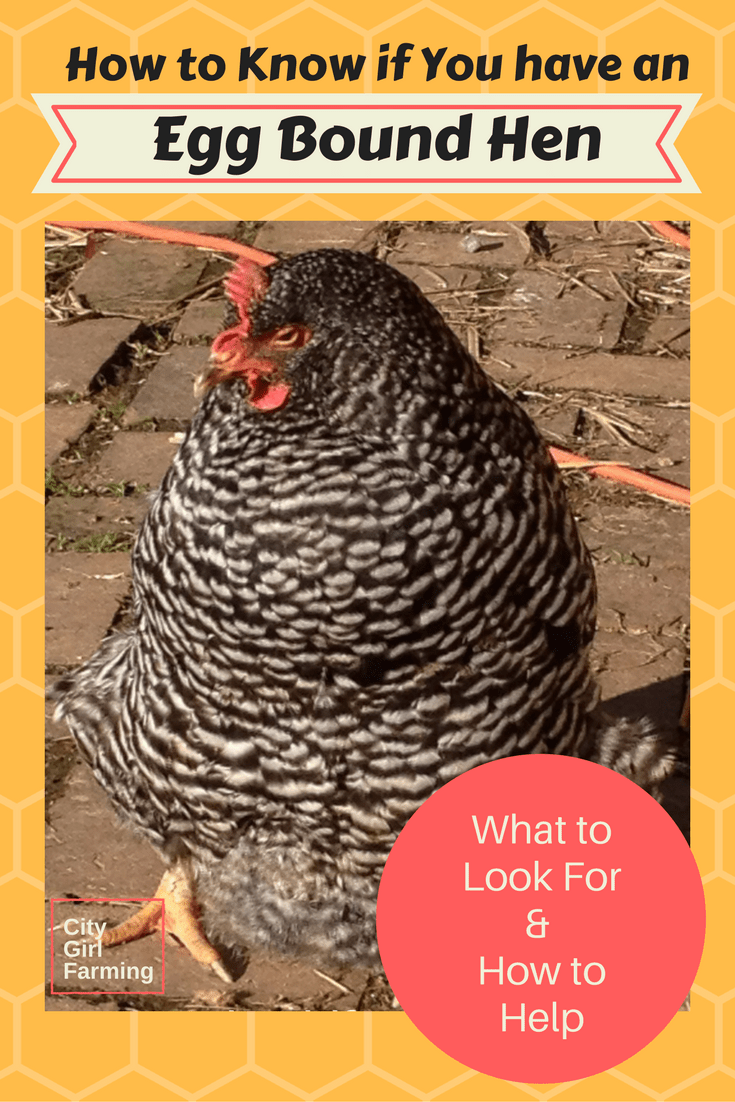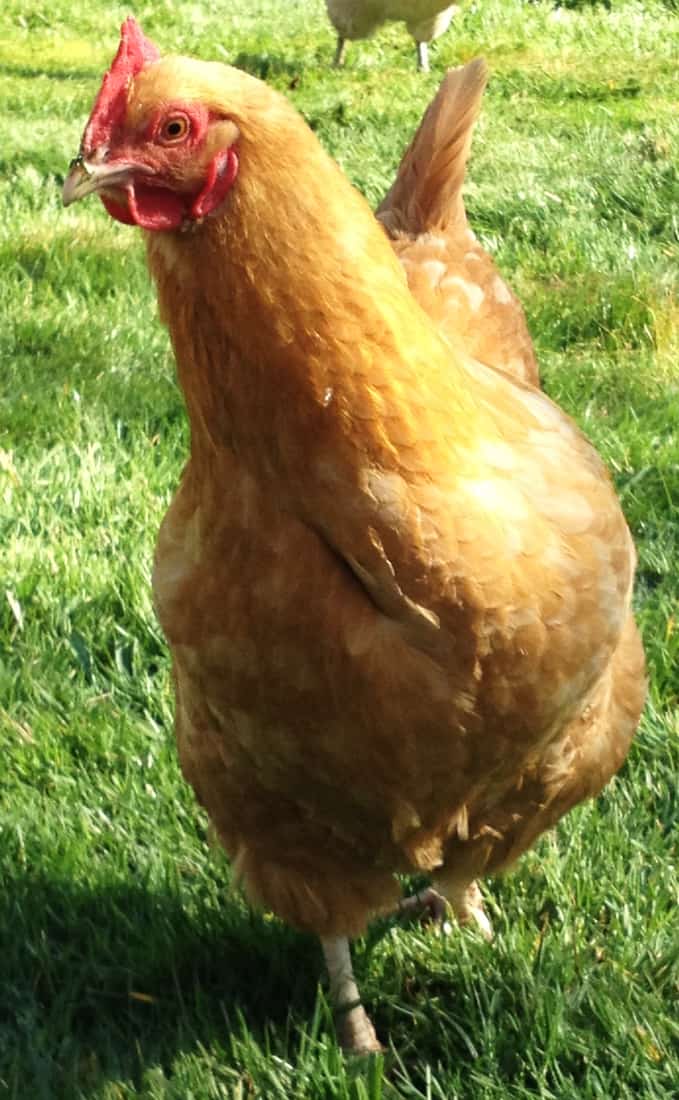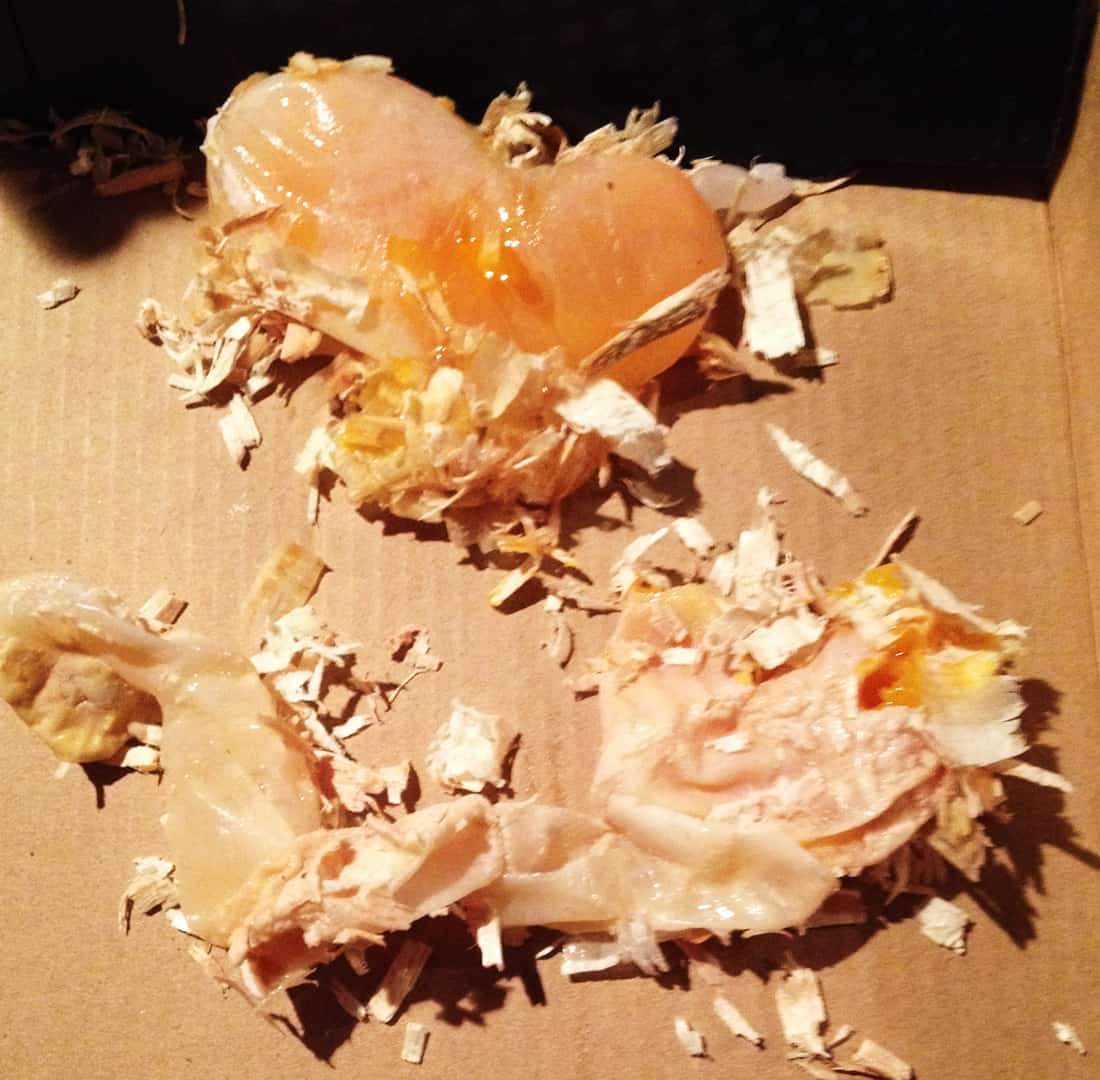
When You Have an Egg Bound Hen
Recently when I went out to see the chickens, Harriet ran FROM me instead of TO me. She NEVER does that. Oh no. A big red flag something was wrong. Oh Harriet! Not again! (She already spent an entire month in the garage this past winter with what looked like fowl pox. She recovered and had been fine ever since. Read more about it here.) But what now??
I needed to get a good look at her, but she wouldn’t let me near. I chased her and caught her under the Rhoddie bush where she apparently thought she was safe from me. Not.
She was a bit droopy in the backside and her abdomen was swollen. I suspected she was egg bound, so I brought her into the garage (her home away from home these past few months), and set her up with a nice warm soaking bath. I couldn’t feel any eggs in my gentle examination of her abdomen and vent area, but I was pretty sure that’s what was wrong with her. I set up a warm indoor area for her and hoped she’d pass an egg.

What is Egg Binding?
Egg binding is a very serious condition where an egg, for some reason, gets stuck inside a hen and won’t come out. If they don’t pass the egg, they will die. If you’re wondering if a hen is egg bound, here are a few things to look for:
- She’ll act ‘sick’
- She will probably be sitting on the ground
- Her tail might be moving up and down
- Her tail might be droopy
- She might be trying to push an egg out
- her abdomen might be swollen
- She might look like a ‘penguin’ in how she’s sitting (like below photo)

What to Do if You Suspect You Have an Egg Bound Chicken
Sometimes a warm bath will help relax them and allow them to lay the egg that’s stuck inside. Sometimes you can go in CAREFULLY and help get the egg out (being careful not to break it). And sometimes, (as a last resort) the egg has to be broken to get it out. I say last resort because there could be all sorts of complications with breaking an egg inside your hen…infections, not getting it all out, cutting her up internally with the shell, etc. But if there’s no other options, she will die anyway, so you have to carefully weigh out the situation and decide what to do in your own situation.
The best case scenario, if possible, is to take an egg bound hen to the vet (if the warm bath method doesn’t work). The sooner the better. Once you realize a hen is egg bound, they don’t usually have too much time. (Remember, chickens try hard to fake everyone out if they’re not feeling well. It’s a survival thing for them. So by the time it’s super obvious, it’s already been going on for awhile.)
I don’t usually take my hens to the vet, but with Harriet I was desperate: the warm bath didn’t pass anything and Harriet is my absolute favorite bird (which those of you who follow this blog can tell, I’m sure!) and I felt helpless. No egg meant certain death. I wasn’t going to have it. Unfortunately, the one avian vet in town had the day off, so I was back to square one. They suggested I go to a regular vet, but I figured I probably know as much about chickens as they do, and they’d want to refer me to the avian vet anyway.
So, I waited it out with Harriet.
She wouldn’t eat or drink. I squeezed tiny amounts of fluid down her with an eyedropper. And waited some more. It didn’t look good and I expected to find her dead on every visit down to check on her.
Two days later, while I was down with her, she laid TWO EGGS in a row. Pop! Pop! One right after the other. One was a double yolker. Both were soft shelled. I was ecstatic! Harriet was hungry! She gobbled up food and water, making up for lost time. All was well in her world once again. Whew. (They say a cat has nine lives, right? I’m starting to think Harriet might be part cat!)
A couple days later, Harriet was back to her egg bound-looking self and laid another soft shell and then was fine. She hasn’t had any issues ever since.
There are a few reasons why a hen might lay a soft shelled egg (you can see more about that here), but Harriet didn’t fit any reason that I could tell. I think something in her system just went whacky for a bit, but now she seems back on track again. Thankfully.
Although egg binding isn’t a huge issue among backyard flocks, it does happen from time to time. Being aware of what it potentially looks like is the first step in helping your hen pass her egg and get back to normal.